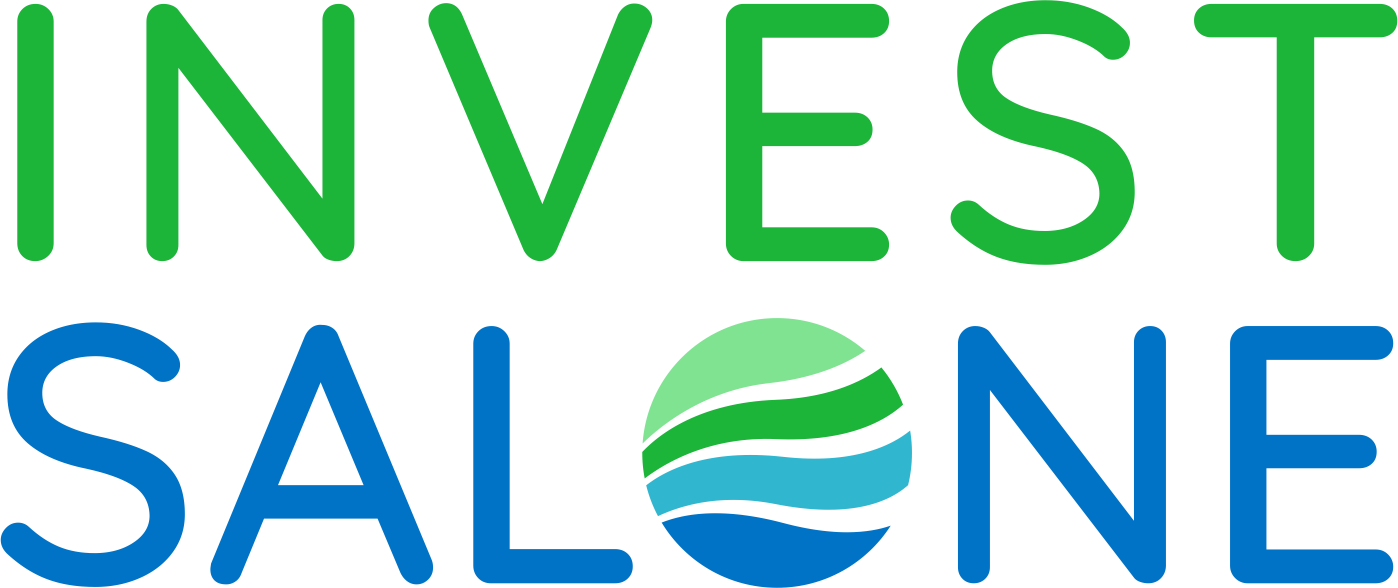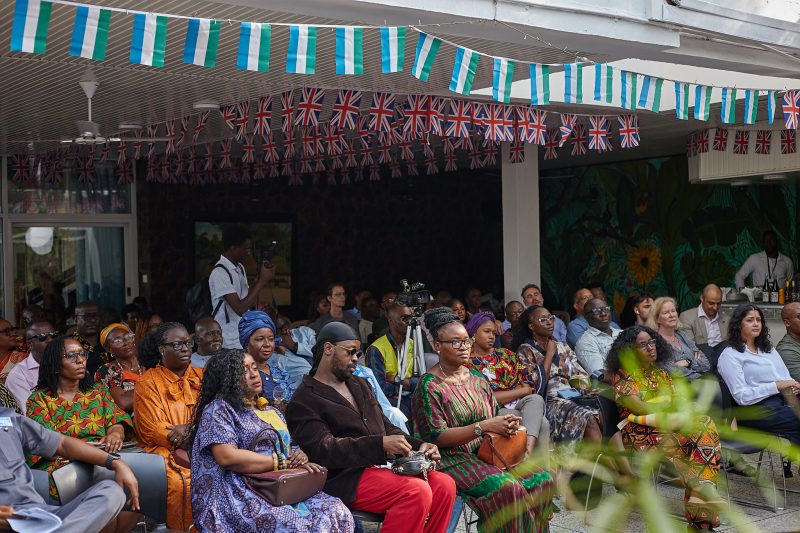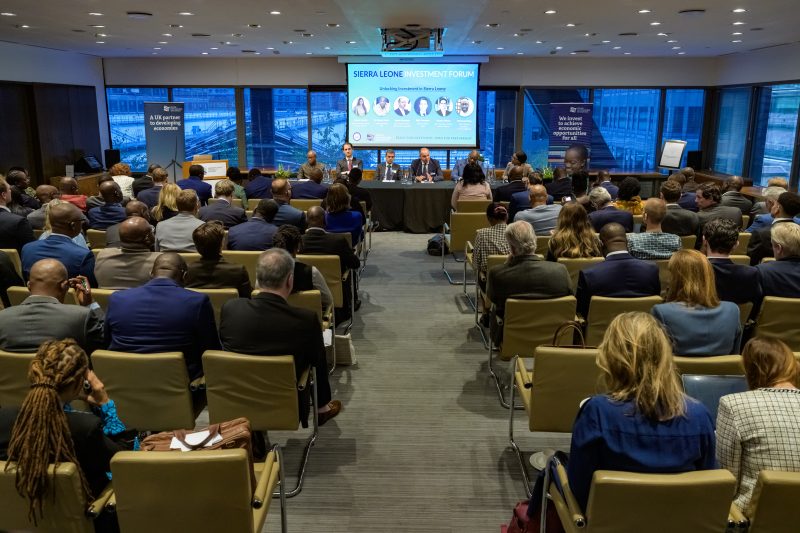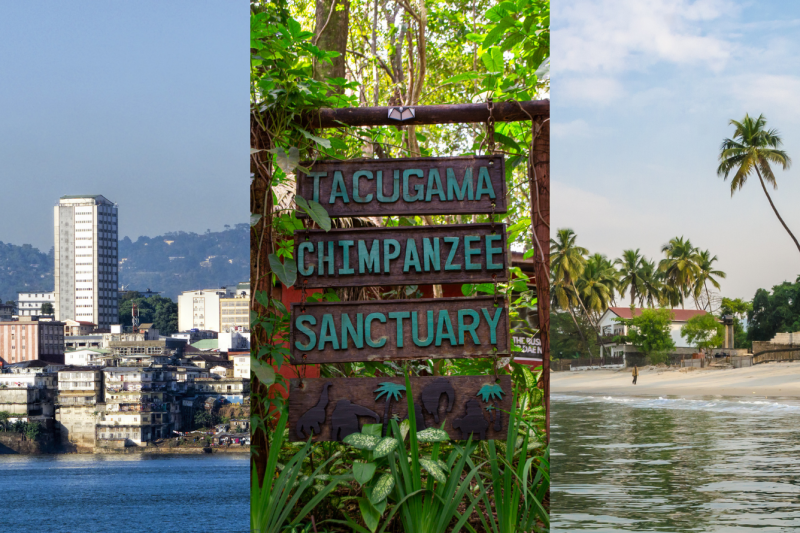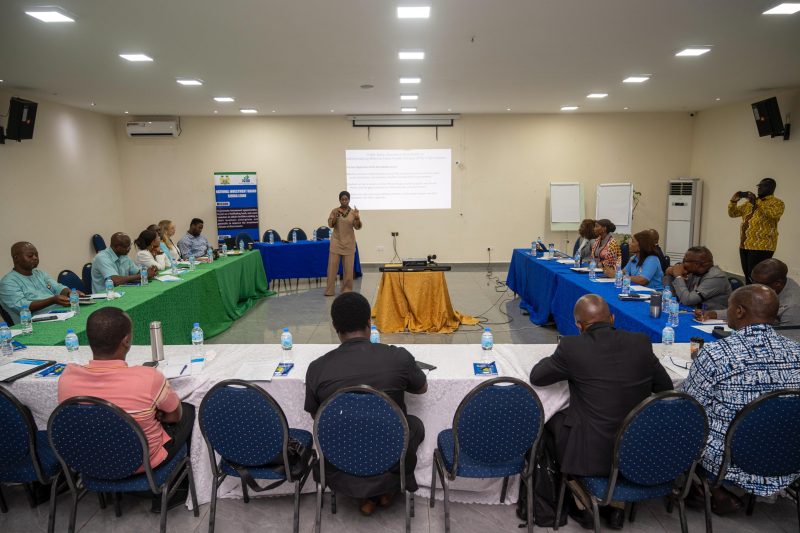A company’s impact on society, the environment and business practices should be viewed as a driver of growth, not a constraint. This was the key takeaway from Sierra Leone’s inaugural conference on leveraging environmental, social and governance (ESG) investing in the private sector.
The conference, titled “Sustainable Futures: ESG as a Catalyst for Resilient Growth”, was organised by the law firm Macauley, Bangura & Co. in collaboration with Invest Salone – a UK-funded private sector development programme – and the Africa Resilience Investment Accelerator (ARIA), a platform aiming to unlock investment in markets across the continent, including Sierra Leone.
The event was intended to kickstart the development of an ESG ecosystem in Sierra Leone to encourage sustainable growth, investor confidence and inclusive development. Participants included representatives from the business community, law firms and the financial sector, among others.
In his opening address which set the tone for the conference, Centus Macauley, Managing Partner at Macauley, Bangura & Co., noted that traditional development partners are donor fatigued and some facing domestic economic challenges, and are becoming less inclined to allocate taxpayer funds to international aid or development programmes. “Consequently, attracting foreign direct investment has gained increased significance and urgency for developing countries such as Sierra Leone,” he continued. “Moreover, as ESG factors become progressively central to the decision-making processes of development finance institutions (DFIs) and other investors, it is crucial for both the private and public sectors to collaborate in creating a sustainable, inclusive and transparent investment ecosystem for Sierra Leone.”
Julius Mattai, Sierra Leone’s Minister of Mines and Mineral Resources, emphasised the importance of ESG principles for long-term stability and value and called for improved socio-economic benefits and environmental protection in the mining sector. Stressing the need for concrete outcomes from the conference, he advocated for a national ESG forum or task force to meet quarterly for coordination and progress tracking.
Following his keynote address, a panel of DFI representatives, development partners and regulators explained how ESG principles are increasingly central to investment decisions. They also discussed efforts to align the Sierra Leonean business and investment space as well as regulations with these principles.
Invest Salone’s Team Leader, Chukwu Emeka Chikezie, opened the panel discussion, saying: “Foreign aid cuts are shifting the focus to new sources of funding like ESG-aligned investments. Today’s event is a significant step towards ensuring Sierra Leone’s ESG readiness.”
Ndeye Koroma of the Millenium Challenge Corporation, stressed that Sierra Leone needs to mobilise resources for transformative projects, saying: “Our energy sector alone requires $3.5–4 billion to achieve 80% electricity access by 2030. ESG criteria can help us access diverse capital markets, driving sustainable and responsible growth.”
The second panel allowed the audience to hear from three companies – PeeCee Holdings, FG Gold and Ecobank – who have between them successfully attracted over half a billion dollars in ESG investment.
Valerie Entsiful, ARIA’s Sierra Leone Country Manager, moderated the panel. She emphasised that ARIA had now prioritised DFI investment in Sierra Leone, saying that companies seeking to access this opportunity or any international capital must understand corporate sustainability, ethics and good governance requirements.
FG Gold’s Sustainability Manager, Evelyn Gyamfi-Hassan, stated that FG Gold is dedicated to incorporating ESG into its culture by collaborating with local communities. This includes enhancing local infrastructure, helping farmers adopt better agricultural methods, and creating inclusive jobs for impacted local artisanal miners and women.
Victor Williams, Head of Commercial Banking at Ecobank Sierra Leone, led the process of raising $25 million from British International Investment for local firms. He says that the bank puts ESG at the heart of its own lending processes: “For example, we now look at whether companies meet the required ESG standards before we assess their credit risk.”
PeeCee Holdings recently secured $32 million from Proparco and the International Finance Corporation to enhance food security and reduce imports by expanding their vegetable oil refinery and the local production of onions. Mohamed Sowe, PeeCee’s Finance Director, said that ESG should be embedded in the company as a performance management tool and was not a quick fix. He noted that costs and a one-size-fits-all approach to sustainability may hinder some firms and suggested that DFIs could offer grants to help firms adopt ESG standards as well as be flexible in adapting them to local conditions.
Mohamed Sowe went on to say that the main goal of adopting ESG principles should be for performance benefits, not fundraising. “Once management is convinced and ESG principles are implemented, the company’s image and long-term sustainability will improve, leading to financial gains. This has happened in many countries, so why not Sierra Leone?”
Emma Fofanah, an ESG investment consultant with Invest Salone said that while ESG practices in the country are still in their early stages, the conference showcased compelling case studies of ESG integration in sectors exposed to significant environmental and social risks. “We are hopeful that ESG adoption in Sierra Leone will evolve beyond being primarily driven by DFIs, toward a broader private sector embrace – recognising ESG as critical not only for attracting investment, but also for improving operational efficiency and managing environmental impacts over the long term.”
The call to action at the conference emphasised establishing a national ESG task force for oversight and coordination, integrating ESG standards into laws and regulations, enforcing compliance through monitoring and incentives, building capacity through training and education, supporting SMEs with technical assistance, developing ESG-compliant projects, and enhancing governance and accountability across sectors. Next steps also highlighted the importance of government leadership in driving a national ESG strategy, private sector readiness, community engagement, investment readiness, collaboration for knowledge sharing, and consistent ESG progress tracking and reporting.
